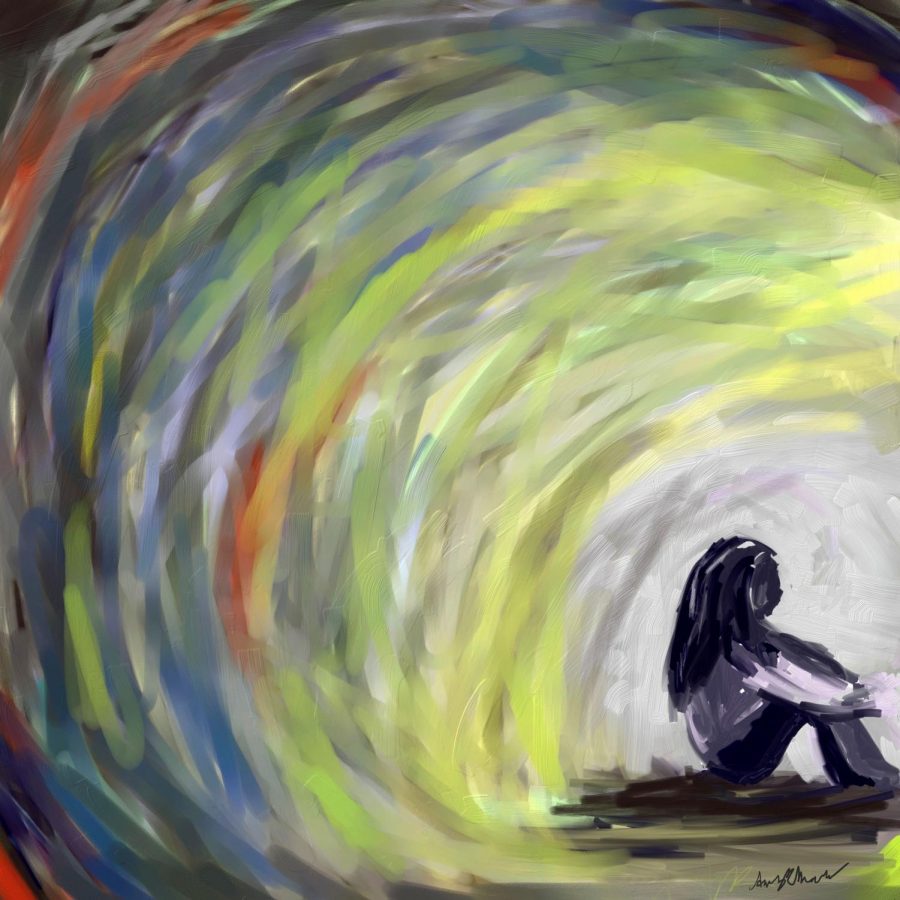COVID-19’s Effect on Teenage Mental Health
December 19, 2020
COVID-19 has brought about a complex array of factors (uncertainty, social isolation, and parental angst) that have impacted the mental health of children and adults. Predictability is a stabilizing force for children and adults, but it has been disrupted since the COVID-19 outbreak.
Children have many worries related to the consequences of COVID-19 such as whether or not they will be able to see their friends, the risk of coming in contact with the virus, and their ability to attend in-person school. It is often difficult for parents to calm their children’s anxieties because of the uncertainty in their lives. Parents typically make future plans for their children in order for them to stay organized and motivated, but future plans are currently on hold. The challenges facing parents may interfere with their usual ability to address their children’s emotional needs. In addition to navigating schoolwork at home, many students have taken on new responsibilities, including childcare, housework, and part-time jobs. This puts additional pressure on teens to use their time and energy in a balanced way, which is already a challenge for the adolescent brain. It also makes it challenging for these students to keep up with schoolwork and can cause many to fall behind.
According to Jedfoundation.org, “In one poll, 83% of teens with a history of mental illness said the pandemic was making their condition worse.” This was in part due to a lack of access to mental health and peer support resources, many of which were obtained through schools. We already know that teenagers who are socially isolated or lonely are more likely to become depressed. Loneliness is associated with an increase in both anxiety and depressive symptoms in youth. Rates of suicide for both adolescents and adults increase during times of high stress. Remember, not everyone who considers suicide will talk about it, and not everyone who talks about suicide will act on their words. However, any talk about suicide should be taken seriously, if you are worried about a friend, reach out to an adult who can help such as a parent or teacher.
These are only a few of the factors impacting teens as a result of COVID-19. If teens were already using alcohol and/or drugs, they likely continue to do so throughout the pandemic. As their stress increases and their access to healthy coping support decreases, they are more at risk for developing substance use disorders. Previous crises show that teenagers may develop substance use problems after the crisis has passed.
If you are wondering how you can help, start with the teens and people in your life. Ask them how covid-19 has impacted their mental health and what support they might need. Help them create structure. It’s something they may not want in the moment, but it’s something we all need. Connect them with mental health resources through either their school or in the community. Finally, be aware of your own coping methods and responses. Set an example by finding healthy coping skills, such as meditation, peer support, counseling, and exercise.





















































































































































